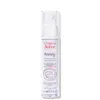What's inside
What's inside
 Key Ingredients
Key Ingredients

 Benefits
Benefits

 Concerns
Concerns

 Ingredients Side-by-side
Ingredients Side-by-side

Water
Skin ConditioningGlycerin
HumectantIsopropyl Palmitate
EmollientAlcohol Denat.
AntimicrobialCetearyl Isononanoate
EmollientSqualane
EmollientPanthenol
Skin ConditioningGlyceryl Stearate Citrate
EmollientCetearyl Alcohol
EmollientHydrogenated Coco-Glycerides
EmollientButyrospermum Parkii Butter
Skin ConditioningMethylpropanediol
SolventLauroyl Lysine
Skin ConditioningIsobutylamido Thiazolyl Resorcinol
BleachingGlycyrrhiza Inflata Root Extract
Skin ConditioningTocopherol
AntioxidantGlucosylrutin
AntioxidantCarbomer
Emulsion StabilisingChondrus Crispus Extract
Skin ConditioningSodium Hydroxide
BufferingIsoquercitrin
AntioxidantTrisodium EDTA
Phenoxyethanol
PreservativeParfum
MaskingWater, Glycerin, Isopropyl Palmitate, Alcohol Denat., Cetearyl Isononanoate, Squalane, Panthenol, Glyceryl Stearate Citrate, Cetearyl Alcohol, Hydrogenated Coco-Glycerides, Butyrospermum Parkii Butter, Methylpropanediol, Lauroyl Lysine, Isobutylamido Thiazolyl Resorcinol, Glycyrrhiza Inflata Root Extract, Tocopherol, Glucosylrutin, Carbomer, Chondrus Crispus Extract, Sodium Hydroxide, Isoquercitrin, Trisodium EDTA, Phenoxyethanol, Parfum
Water
Skin ConditioningTriethylhexanoin
MaskingCyclopentasiloxane
EmollientCetearyl Alcohol
EmollientCyclohexasiloxane
EmollientCeteareth-20
CleansingPolymethyl Methacrylate
Ceteareth-33
CleansingCaprylic/Capric Triglyceride
MaskingAmmonium Acryloyldimethyltaurate/Vp Copolymer
Oenothera Biennis Oil
EmollientPhenoxyethanol
PreservativeBenzoic Acid
MaskingDisodium EDTA
Retinal
Skin ConditioningTocopheryl Glucoside
EmollientOleoyl Dipeptide-15
Skin ConditioningMica
Cosmetic ColorantSodium Hydroxide
BufferingSilica
AbrasiveBHT
AntioxidantOleoyl Tetrapeptide-31
AntioxidantTocopherol
AntioxidantTitanium Dioxide
Cosmetic ColorantCaramel
Cosmetic ColorantCI 17200
Cosmetic ColorantWater, Triethylhexanoin, Cyclopentasiloxane, Cetearyl Alcohol, Cyclohexasiloxane, Ceteareth-20, Polymethyl Methacrylate, Ceteareth-33, Caprylic/Capric Triglyceride, Ammonium Acryloyldimethyltaurate/Vp Copolymer, Oenothera Biennis Oil, Phenoxyethanol, Benzoic Acid, Disodium EDTA, Retinal, Tocopheryl Glucoside, Oleoyl Dipeptide-15, Mica, Sodium Hydroxide, Silica, BHT, Oleoyl Tetrapeptide-31, Tocopherol, Titanium Dioxide, Caramel, CI 17200
Alternatives
Ingredients Explained
These ingredients are found in both products.
Ingredients higher up in an ingredient list are typically present in a larger amount.
Cetearyl alcohol is a mixture of two fatty alcohols: cetyl alcohol and stearyl alcohol. It is mainly used as an emulsifier. Emulsifiers help prevent the separation of oils and products. Due to its composition, it can also be used to thicken a product or help create foam.
Cetearyl alcohol is an emollient. Emollients help soothe and hydrate the skin by trapping moisture.
Studies show Cetearyl alcohol is non-toxic and non-irritating. The FDA allows products labeled "alcohol-free" to have fatty alcohols.
This ingredient is usually derived from plant oils such as palm, vegetable, or coconut oils. There is debate on whether this ingredient will cause acne.
Due to the fatty acid base, this ingredient may not be Malassezia folliculitis safe.
Learn more about Cetearyl AlcoholPhenoxyethanol is a preservative that has germicide, antimicrobial, and aromatic properties. Studies show that phenoxyethanol can prevent microbial growth. By itself, it has a scent that is similar to that of a rose.
It's often used in formulations along with Caprylyl Glycol to preserve the shelf life of products.
Sodium Hydroxide is also known as lye or caustic soda. It is used to adjust the pH of products; many ingredients require a specific pH to be effective.
In small amounts, sodium hydroxide is considered safe to use. However, large amounts may cause chemical burns due to its high alkaline.
Your skin has a natural pH and acid mantle. This acid mantle helps prevent harmful bacteria from breaking through. The acid mantle also helps keep your skin hydrated.
"Alkaline" refers to a high pH level. A low pH level would be considered acidic.
Learn more about Sodium HydroxideTocopherol (also known as Vitamin E) is a common antioxidant used to help protect the skin from free-radicals and strengthen the skin barrier. It's also fat soluble - this means our skin is great at absorbing it.
Vitamin E also helps keep your natural skin lipids healthy. Your lipid skin barrier naturally consists of lipids, ceramides, and fatty acids. Vitamin E offers extra protection for your skin’s lipid barrier, keeping your skin healthy and nourished.
Another benefit is a bit of UV protection. Vitamin E helps reduce the damage caused by UVB rays. (It should not replace your sunscreen). Combining it with Vitamin C can decrease sunburned cells and hyperpigmentation after UV exposure.
You might have noticed Vitamin E + C often paired together. This is because it is great at stabilizing Vitamin C. Using the two together helps increase the effectiveness of both ingredients.
There are often claims that Vitamin E can reduce/prevent scarring, but these claims haven't been confirmed by scientific research.
Learn more about TocopherolWater. It's the most common cosmetic ingredient of all. You'll usually see it at the top of ingredient lists, meaning that it makes up the largest part of the product.
So why is it so popular? Water most often acts as a solvent - this means that it helps dissolve other ingredients into the formulation.
You'll also recognize water as that liquid we all need to stay alive. If you see this, drink a glass of water. Stay hydrated!
Learn more about Water